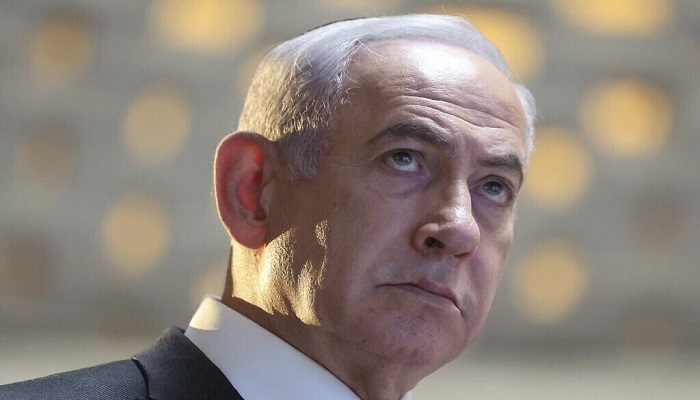PNN – In recent months, the level of internal conflicts and tensions in the Zionist regime has reached a level where many Hebrew-speaking experts are warning of sudden events in the regime, similar to the November 1995 incident.
According to the report of Pakistan News Network, the internal crisis in the Zionist regime has intensified in recent months and has entered an irreversible stage compared to before. The nature and form of the differences are such that, according to Hebrew-speaking experts and analysts, they can no longer be resolved through internal dialogue and political solutions resulting from collective agreement, and the only way out would be for Netanyahu and his cabinet to step down from power and then put on trial.
Netanyahu, the crisis politician
Today, Benjamin Netanyahu and his rule in the Zionist regime are the root of many problems and conflicts within the regime. After being removed from power due to his failure to form a government, he returned to power by winning the elections in 2022; a return that signaled the beginning of a new era of internal developments in the Zionist regime.

Before Netanyahu’s victory and return to power in 2022, his opponents and rival factions repeatedly warned of the consequences of his return to power. The most eloquent example of this was the letter from former Prime Minister Naftali Bennett to Zionists and settlers entitled “A Letter to the Silent Crowd.” Naftali Bennett begins his letter with this introduction:
Throughout history, the Jews have had an independent and unified state in this land twice. The first time, there was a Jewish state for 80 years and then it was divided due to internal conflicts. The second time, the Jewish state existed for about 77 years and then due to internal conflicts, its rule was destroyed by the Romans. Israel is the third period of Jewish rule. Now the country is 75 years old. We are all facing the test of whether we will succeed in getting through the 1980s as an independent and united country, or will we fail again due to internal conflicts?
Bennett, referring to the danger of Netanyahu’s return to power and his dangerous policies, warns that if this happens, the Israeli (regime) will suffer the fate of the two previous Jewish governments in the Palestinian territories, and it will be nothing but collapse and collapse.
During his term as prime minister, Netanyahu resorted to creating wars outside the borders of occupied Palestine to manage internal crises, thus managing his own crises by creating a larger crisis. This process places additional pressure on the body of Zionist society, a society whose main characteristics are fragmentation, and the policies of the Zionist regime, like a melting pot, have not been successful in creating cohesion within this fragmented society.

Sacrificing the Zionist regime for personal gain
The level of disagreements within the social and political body of the Zionist regime was so high that from the first day of Netanyahu’s government, demonstrations and opposition against his government began in the occupied territories. But the real beginning of the conflicts was with the presentation of the judicial reform plan; a plan that sought to turn the prime minister and the government into the most powerful person and institution in the regime’s internal structure by limiting the powers of the judicial structure; a plan that Netanyahu’s opponents called a “legal coup.” After this plan was presented, Benny Gantz, one of the leaders of the opposition to Netanyahu’s government, warned him in strong words that if he tried to implement and advance this plan, he would be the main culprit in the fratricidal war (civil war).
The impact of elections on the political atmosphere
A look at the history of the Zionist regime shows that in critical moments, internal disputes can lead to unexpected results. The assassination of Yitzhak Rabin was the result of a gradual process of hatred and polarization. Currently, internal divisions within the Israeli regime, especially the growing anger against Netanyahu due to his controversial policies, corruption allegations, and the humiliating defeat of October 7, have created an atmosphere that is inflamed and highly susceptible to internal tensions. Experts and analysts say the situation bears some resemblance to the period before Yitzhak Rabin’s assassination in 1995, when political divisions and hatred reached their peak. Public anger at Rabin over the Oslo peace talks made him a target for extremists. Rabin’s guilt, in the eyes of his opponents, was his neglect of territories that they see as part of Greater Israel.

